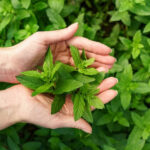In the vast realm of herbal remedies, Echinacea stands as a botanical marvel, celebrated for its immune-boosting properties and historical significance.
Also known as the coneflower, Echinacea has been a staple in traditional medicine for centuries. In this comprehensive guide, we will delve into the origins, uses, benefits, and scientific findings surrounding Echinacea.

The Origins of Echinacea
. Historical Roots
Echinacea, a member of the Asteraceae family, has deep historical roots in Native American cultures. Indigenous people, particularly those of the Great Plains, utilized Echinacea for its medicinal properties. They brewed teas and poultices to treat various ailments, from wounds to respiratory issues.
. Botanical Characteristics
Echinacea plants are characterized by their vibrant, daisy-like flowers with a prominent cone-shaped center. There are nine known species, with Echinacea purpurea and Echinacea angustifolia being the most widely used for medicinal purposes. These hardy perennials thrive in North American prairies and open woodlands.
The Medicinal Power of Echinacea
. Immune System Support
One of the key attributes of Echinacea is its ability to boost the immune system. Research suggests that certain compounds in Echinacea stimulate the production of white blood cells, enhancing the body’s defense mechanisms against infections.
. Cold and Flu Relief
Echinacea has gained popularity as a natural remedy for the common cold and flu. Studies have explored its effectiveness in reducing the severity and duration of these illnesses, making it a go-to option for those seeking alternatives to conventional treatments.
3. Anti-Inflammatory Properties
Beyond immune support, Echinacea exhibits anti-inflammatory properties. This makes it a potential remedy for inflammatory conditions, such as arthritis. Research is ongoing to understand the specific mechanisms behind Echinacea’s anti-inflammatory effects.
Forms of Echinacea
. Herbal Teas and Infusions
One of the most traditional ways to consume Echinacea is through herbal teas. These teas are made by steeping the dried roots, leaves, or flowers of the plant. We explore the preparation methods and dosages for maximum benefits.
. Tinctures and Extracts
For a more concentrated dose, tinctures and liquid extracts of Echinacea are available. Understanding the extraction process and proper usage is crucial to harness the full potential of these potent formulations.
. Echinacea Supplements
In the modern era, Echinacea has found its way into various supplements, including capsules and tablets. We explore the pros and cons of these convenient options and discuss how to choose the right supplement for individual needs.
Echinacea in Modern Medicine
. Clinical Studies and Research
Scientific exploration of Echinacea has surged in recent years, with numerous clinical studies investigating its efficacy and safety. We delve into the findings of key research and the implications for integrating Echinacea into mainstream healthcare.
. Potential Side Effects and Precautions
While generally considered safe, Echinacea may not be suitable for everyone. We outline potential side effects, interactions with medications, and precautions to ensure informed and responsible usage.
Growing Echinacea at Home
. Cultivation Tips
For those with a green thumb, growing Echinacea at home can be a rewarding experience. We provide a step-by-step guide to cultivating these resilient plants, from choosing the right soil to ensuring proper sunlight and water conditions.
. Harvesting and Preservation
Learn the best practices for harvesting Echinacea to preserve its medicinal potency. Whether drying the flowers for teas or extracting the roots for tinctures, proper techniques are essential for maintaining efficacy.
Echinacea Myths and Realities
. Debunking Common Misconceptions
Despite its popularity, Echinacea has not been immune to myths and misconceptions. We address common beliefs surrounding Echinacea, separating fact from fiction to provide a clear understanding of its true potential.
Advantage of Echinacea
Echinacea, commonly known as coneflower, offers several advantages and health benefits. Here are some key advantages of Echinacea:
1. Immune System Support:
Echinacea is renowned for its immune-boosting properties. It stimulates the production and activity of white blood cells, enhancing the body’s defense mechanisms against infections.
2. Reduced Severity and Duration of Colds and Flu:
Studies suggest that regular use of Echinacea supplements or teas may help reduce the severity and duration of the common cold and flu, providing relief during respiratory infections.
3. Anti-Inflammatory Effects:
Echinacea exhibits anti-inflammatory properties, making it beneficial for conditions characterized by inflammation. This includes potential relief for inflammatory issues such as arthritis.
4. Respiratory Health Support:
Traditional uses of Echinacea include addressing respiratory issues like bronchitis and sinusitis. Its anti-inflammatory and immune-boosting properties contribute to respiratory health.
5. Antioxidant Activity:
Echinacea contains antioxidants, including flavonoids, which help neutralize free radicals in the body. This antioxidant activity contributes to cellular health and helps combat oxidative stress.
6. Wound Healing and Skin Health:
Echinacea’s antimicrobial properties make it beneficial for wound healing. Topical applications can promote the healing of cuts, burns, and skin infections.
7. Potential Stress Management:
Some studies suggest that Echinacea may have adaptogenic qualities, aiding the body in coping with stress and potentially promoting overall well-being.
8. Cardiovascular Health:
Preliminary research indicates that Echinacea may help regulate blood pressure, contributing to cardiovascular health.
9. Allergy Relief:
Echinacea’s anti-inflammatory properties may extend to relieving symptoms associated with allergies, making it a natural option for those with hay fever or other allergic reactions.
10. Antiviral and Antibacterial Properties:
Echinacea’s antiviral and antibacterial properties make it a valuable ally in combating various infections, supporting the body’s natural defense against pathogens.
11. Convenient Forms for Consumption:
Echinacea is available in various forms, including herbal teas, tinctures, extracts, and supplements. This versatility allows individuals to choose a form that suits their preferences and health needs.
12. Home Cultivation:
Echinacea can be grown at home, providing individuals with the opportunity to have a sustainable source of this medicinal herb. Cultivating Echinacea at home ensures freshness and quality.
13. Natural and Traditional Remedy:
Echinacea has a long history of use in traditional medicine, particularly by Native American cultures. Its natural origin and historical significance contribute to its appeal as a traditional remedy.
14. Potential Cardiovascular Benefits:
Early research suggests that Echinacea may have positive effects on cardiovascular health by influencing factors like blood pressure. However, more research is needed to fully understand these benefits.
15. Accessible and Widely Available:
Echinacea supplements, teas, and extracts are widely available, making it easily accessible for those seeking a natural remedy to support their health.
While Echinacea offers various advantages, it’s crucial to note that individual responses may vary. Consulting with a healthcare professional before incorporating Echinacea into a health regimen is advisable, especially for those with pre-existing medical conditions or taking medications.
Disadvantage of Echinacea
While Echinacea is generally considered safe for most people when used as directed, there are potential disadvantages and considerations associated with its use. It’s essential to be aware of these aspects before incorporating Echinacea into your health regimen. Here are some potential disadvantages of Echinacea:
1. Allergic Reactions:
In rare cases, individuals may experience allergic reactions to Echinacea. Symptoms may include rash, itching, swelling, or difficulty breathing. If any allergic reactions occur, it’s crucial to seek medical attention immediately.
2. Interactions with Medications:
Echinacea may interact with certain medications, including immunosuppressants. It’s advisable to consult with a healthcare professional before using Echinacea, especially for individuals taking medications that affect the immune system.
3. Autoimmune Disorders:
People with autoimmune disorders, such as rheumatoid arthritis or lupus, should exercise caution with Echinacea. The herb’s immune-stimulating effects could potentially exacerbate autoimmune conditions.
4. Pregnancy and Breastfeeding:
Pregnant or breastfeeding women should consult with their healthcare providers before using Echinacea. While some studies suggest it may be safe, there is limited research on its effects during pregnancy and lactation.
5. Cross-Allergies:
Individuals with known allergies to plants in the Asteraceae family, which includes ragweed, marigolds, and daisies, may be more prone to allergic reactions to Echinacea due to cross-allergies.
6. Digestive Upset:
Some individuals may experience mild digestive upset, such as nausea or stomach discomfort, when using Echinacea. Taking it with food or dividing the dosage may help minimize these effects.
7. Length of Use:
The appropriate length of Echinacea use is a subject of debate. Prolonged use may lead to reduced effectiveness, and some experts recommend periodic breaks to prevent tolerance.
8. Drug Interactions:
Echinacea may interact with certain medications, including antifungal medications and drugs that affect the liver. It’s essential to inform your healthcare provider about all medications and supplements you are taking.
9. Not a Cure for Serious Infections:
While Echinacea may support the immune system, it is not a cure for serious infections. Individuals with severe illnesses should seek medical attention and follow prescribed treatments.
10. Limited Regulation of Herbal Supplements:
Herbal supplements, including Echinacea products, are not as rigorously regulated as pharmaceuticals. This can lead to variations in the quality and potency of different Echinacea products on the market.
11. Effectiveness Varies:
Echinacea’s effectiveness can vary among individuals. Some people may experience noticeable benefits, while others may not respond as strongly.
12. Potential for Overuse:
Using Echinacea continuously without breaks or without addressing the underlying causes of health issues may mask symptoms rather than addressing the root causes.
13. Not Recommended for Children Under 2:
Echinacea is generally not recommended for children under the age of two. Parents should consult with a pediatrician before giving Echinacea to children.
14. Standardization Issues:
Standardization of Echinacea products can vary, leading to differences in the concentration of active compounds. Choosing reputable brands and products can help mitigate this issue.
15. Inconsistent Research Findings:
While some studies support the benefits of Echinacea, research findings can be inconsistent, and more high-quality studies are needed to establish its efficacy for certain conditions definitively.
It’s crucial to approach Echinacea and any herbal supplement with caution, especially if you have pre-existing health conditions or are taking medications. Consult with a healthcare professional for personalized advice based on your individual health circumstances.
Frequently Asked Questions (FAQ)
Q1: What is Echinacea, and how does it contribute to health?
A: Echinacea is a flowering plant known for its medicinal properties. It is believed to support health by stimulating the immune system, reducing inflammation, and providing various antioxidants.
Q2: How does Echinacea boost the immune system?
A: Echinacea contains compounds like alkamides and polysaccharides that can stimulate the activity of white blood cells, enhancing the body’s immune response against infections.
Q3: Can Echinacea help prevent or reduce the severity of colds and flu?
A: Yes, research suggests that Echinacea may help reduce the severity and duration of colds and flu by strengthening the immune system. Regular use during the cold and flu season is commonly recommended.
Q4: Are there specific respiratory conditions that Echinacea may help with?
A: Echinacea has traditionally been used to address respiratory issues such as bronchitis and sinusitis. Its anti-inflammatory properties may contribute to relieving symptoms associated with these conditions.
Q5: Is Echinacea effective for wound healing?
A: Yes, Echinacea’s antimicrobial properties make it beneficial for wound healing. Topical applications in the form of creams or ointments may accelerate the healing process for cuts, burns, or skin infections.
Q6: Can Echinacea be used for stress management?
A: Some studies suggest that Echinacea may have adaptogenic qualities, potentially helping the body cope with stress. However, more research is needed to fully understand its impact on stress management.
Q7: How does Echinacea contribute to cardiovascular health?
A: Preliminary studies indicate that Echinacea may help regulate blood pressure, contributing to cardiovascular health. However, further research is necessary to confirm and understand these potential benefits fully.
Q8: Is Echinacea beneficial for allergy relief?
A: Echinacea’s anti-inflammatory properties may extend to relieving symptoms associated with allergies. Some individuals use Echinacea to manage hay fever, but more research is needed to establish its effectiveness in this regard.
Q9: Can Echinacea be used as an antiviral and antibacterial agent?
A: Yes, Echinacea possesses antiviral and antibacterial properties, making it a natural aid in combating various infections. It may help the body resist and fight viral and bacterial invaders.
Q10: Are there any potential side effects or interactions with medications?
A: While generally considered safe, some individuals may experience mild side effects. It’s advisable to consult with a healthcare professional, especially for those with pre-existing medical conditions or taking medications, to ensure safe usage.
Q11: What are the different forms of Echinacea available?
A: Echinacea is available in various forms, including herbal teas, tinctures, extracts, and supplements (capsules or tablets). Each form has its advantages, and choosing the right one depends on individual preferences and health needs.
Q12: Can Echinacea be grown at home?
A: Yes, Echinacea can be cultivated at home. Proper cultivation tips, including choosing the right soil and ensuring proper sunlight and water conditions, are essential for growing healthy Echinacea plants.
Q13: Is Echinacea suitable for everyone?
A: While generally safe, Echinacea may not be suitable for everyone. Pregnant or breastfeeding women, individuals with autoimmune disorders, or those on immunosuppressive medications should consult with a healthcare professional before using Echinacea.
Q14: How long does it take for Echinacea to show its effects?
A: The time it takes for Echinacea to show effects may vary among individuals. Some may experience benefits within a few days, while others may require longer-term use for noticeable results.
Q15: Can Echinacea be used as a preventive measure?
A: Echinacea is often used preventively, especially during cold and flu seasons, to support immune health and potentially reduce the risk of infections. However, individual responses may vary.


